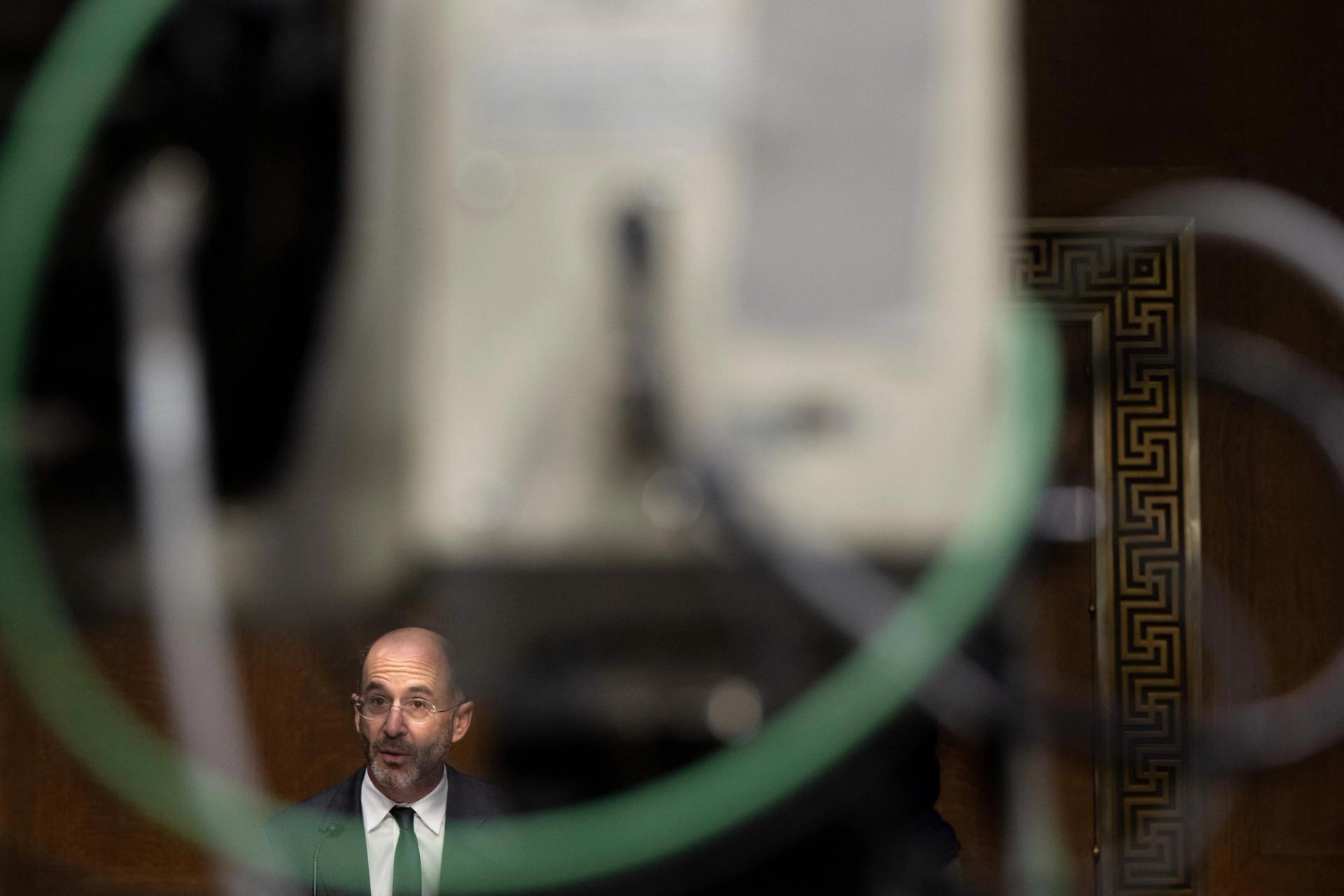The News
Senate and House Republicans called Tuesday for an investigation into an Iranian-backed influence operation, called the Iran Experts Initiative, which sought to build relationships with overseas academics and researchers in the West beginning in 2014 and involved close associates of Robert Malley, the Biden administration’s suspended special envoy on Iran. One of those people is now a senior Pentagon official.
Details of the IEI were first revealed Tuesday by Semafor and Iran International, citing hundreds of leaked Iranian Foreign Ministry emails going back a decade. Other organizations whose staff were named in the emails as being part of the IEI describe it instead as an informal network of researchers and academics that was not overseen by Iran and that was funded by a European government and institutions, which they declined to name.
The Republican chairmen of the House Armed Services Committee and House Subcommittee on Intelligence and Special Operations jointly wrote Defense Secretary Lloyd Austin Tuesday, in response to the report, and requested a review of the security clearance approved for Ariane Tabatabai, the Pentagon official described in the Iranian documents as being part of the IEI. Tabatabai is a leading academic on Iran and brought into the Biden administration by Malley in 2021 to be part of his nuclear negotiating team with Tehran.
“Was the Department aware of Ms. Tabatabai’s participation in Iranian government-sponsored influence networks, such as the Iran Experts Initiative?” Reps. Mike Rogers and Jack Bergman wrote. They requested the Pentagon answer this question, and six others, by next Tuesday.
Sen. Ted Cruz, who serves on the Senate Foreign Relations Committee, demanded the administration suspend the security clearances of any U.S. official tied to the IEI. He also called on the White House to refrain from resuming nuclear negotiations with Tehran, given the information about the IEI initiative.
“Americans have rightly been asking why the Biden administration is so friendly with the Iranian regime, and why Biden administration officials have so single-mindedly enabled Iranian nuclear progress and terrorism,” Cruz wrote. “These reports and emails suggest a vast Iranian influence operation that goes to the very top of the administration.”
The messages cited in Semafor’s story about the IEI covered a period in the mid-2010s when the Obama administration and Iran – under the more moderate President Hassan Rouhani – were negotiating to constrain Tehran’s nuclear program; it’s unclear if the IEI, which was set up by Rouhani’s Foreign Ministry, continues to function since the 2021 election of Ebrahim Raisi, who’s been sanctioned by the U.S. for human rights abuses.
Malley had his security clearance revoked last April, and the State Department suspended him without pay from his special envoy role in June. Semafor was the first to report that the FBI is investigating Malley’s handling of classified documents.
Room for Disagreement
The State Department’s spokesman, Matthew Miller, said that he couldn’t speak to the “underlying details” of the IEI program, which he stressed began almost a decade ago. But he defended Tabatabai’s hiring by the State Department and said she’d gone through an extensive vetting to get her security clearance.
”[Tabatabai] has written critically of Iran on a number of occasions before joining the government and underwent a thorough background investigation to obtain a security clearance before joining the State Department,” Miller told a press briefing.
Miller declined to say whether the investigation into Malley is tied to the IEI initiative. “I am reluctant to say anything at all about the investigation,” he said.
Ali Vaez, a close aide to Malley and named as a participant in the IEI, challenged on Tuesday the perception that Iran’s Foreign Ministry oversaw the initiative. He said the messages reflected internal Iranian communications seeking to hype their influence over Western capitals.
“The Iranian correspondence on the IEI is a one-sided and self-congratulatory load of nonsense,” he said in a long thread on X, formerly called Twitter. “They either did not know, or were spinning beyond recognition, an initiative by European think-tankers, with support by a major European govt, to hold occasional policy discussions.”
Vaez said that he shared a draft of one of his opinion pieces with Iranian officials before publication, as a courtesy. He said, in reality, Tehran had accused him of being too harsh to their position. “The piece criticized both sides’ position in a balanced way and was published with no substantive changes,” he wrote.
Semafor reached out to Vaez months before publication, but he didn’t respond. The International Crisis Group, his employer, responded in his place, and offered similar perceptions of the IEI. ICG also noted that all the work its staff publish is vetted and agreed-upon in-house; they dispute that any government could direct a member of their team to take a position at odds with the organization’s official view.
